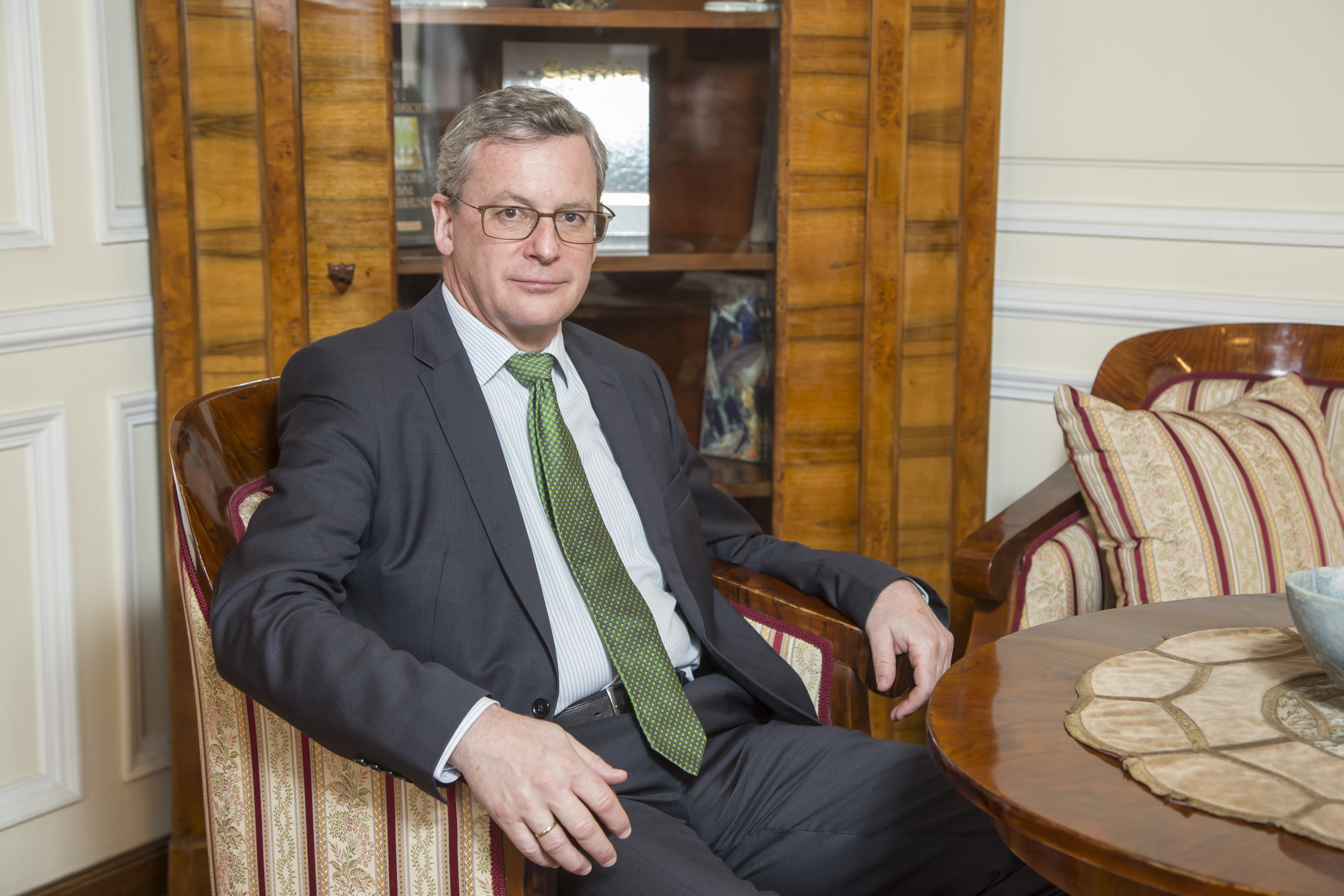Relations between Serbia and Austria are at „five-stars-level“. However, they can be improved to „five-stars +“. It will take very specific efforts, among which would be the need and desire to make Serbia still better known to Austrian people.
Serbia is a key country and a key partner in the Berlin Process and it can serve as an example when it comes to the determination which with it pursues its path towards EU-membership, says H.E. Johannes Eigner, Austrian Ambassador to Serbia in an interview for the Diplomacy &Commerce. Austria strongly supports Serbia’s EU accession process and believes that already excellent bilateral relations between two countries can be even better, says the Ambasador.

foto Bosko Karanovic
Austria is providing expert assistance to the EU path of Serbia in various fields, mainly through EU-twinning projects. “We are particularly active in areas such as justice, home affairs and environment”, says Mr Eigner.
The ambassador also believes that albeit the EU is consumed with the Brexit, that does not mean that the Western Balkan will be forgotten. He says that the WB countries will have to have their place inside the structures of the EU, and that current deliberations related to the future EU structure, will not jeopardise this process. „The Berlin Process is a vigorous tool for corroborating this accession process”, says Mr Eigner.
In this interview, the Ambassador prizes Serbia for its engagement in the process of cooperation in the Western Balkans. He emphasises the constructive role Serbia has in building up better relations with the neighbours in the region, including the dialogue with Kosovo.
Do you think that the current debates in the EU about its structure could again push aside the issue of the Western Balkan countries’ accession to the EU?
It is true that the EU currently is very much occupied with itself and that will not change in the coming years when the exit-negotiations with the UK will absorb almost all of the attention and the capacities inside the EU. This however does und must not mean that the accession process of the Western Balkan countries will be meanwhile put into the „fridge“. There is no doubt that this countries have to have their place inside the structures of a no matter how reformed European Union.
Which place does the Berlin Process occupy in this context? Do you think that it has lost its momentum?
The Berlin Process is a vigorous tool for corroborating this accession process. It encourages closer cooperation between the countries of the region, focussing on tangible results and practical solutions, like for instance in the case of infrastructure. As such it will keep its importance also in the years to come.
How much are mutual accusations of the Balkan leaders a byproduct of frequent elections, and how big of a threat do they pose to the laboriously accomplised stability?
Everywhere (pre-) election periods are marked by a heightened search for often short-term popularity, and the Balkans certainly are no exception to that. In particular nationalistic rhetoric and agitation are still too often seen as a recipe for success and not as a potential threat to what has been achieved in stabilizing the region.
What role does Serbia have in the aforementioned processes?
Serbia is a key country and a key partner in the Berlin Process and it can serve as an example when it comes to the determination which with it pursues its path towards EU-membership, including by playing a constructive role in building up better relations with the neighbours in the region, not least with Kosovo through the EU-facilitated dialogue. That does not mean that everything goes smoothly and easily, but the strategic choice is firmly set.
What do you think of the pace of Serbia’s integration into the EU?
With seven chapters opened since the formal start of accession negotiations in 2014 Serbia is moving ahead at reasonable pace. It is by and large in its hand to keep this pace or to accelerate it, depending on the speed and the depth of reforms undertaken. It is however also true that the principle of unanimity under which accession negotiations is held can lead to unexpected delays.
In which segments (of the EU integration of Serbia) does Austria provide the biggest support?
First and foremost Austria provides political support by consistently and fervently advocating Serbia’s quick and full integration into the EU. This policy is underpinned by expert assistance in various fields, mainly through EU-twinning projects. Here Austria was and is particularly active in areas like justice and home affairs or environment.
How would you rate the overall relations between our two countries and how can these relations further improve?
I would describe our relations as at „five-stars-level“, hence any improvement would mean an up-grading to „five-stars +“. This is not impossible but takes very specific efforts, among which I would see the need and desire to make Serbia still better known to Austrian people.
What do you think of the current situation with the migrant crisis, and Serbia’s role in it?
Since a year ago the mass migration along the Balkan route was stopped, the situation became much less worrisome but has to be kept under careful scrutiny. In that Austria enjoys the best possible cooperation with Serbia and lends its support to Serbia, in particular by having Austrian policemen patrolling together with their Serbian colleagues at the Serbian-Bulgarian border.